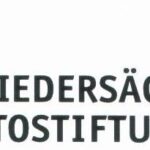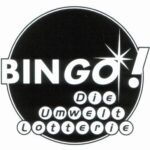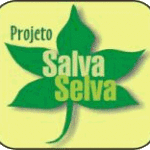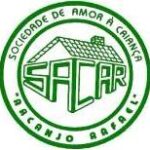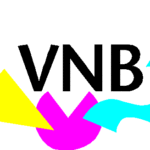Oca (Brazilian Tupi) + Mundi (Latin) = World’s House.
At Tropis, since 1995, OCA is also
Oficina de Conhecimento & Artes, or
Knowledge & Arts Workshop – an initiative aiming
at social, cultural, educational and ethical renewal, started
by a small group in a small house in the outskirts of Sao Paulo.
OCA MUNDI represents therefore this initiative’s widening
through the involvement of more beings (individuals,
groups, rivers, trees… you?) up to the world dimension.
At this moment, the following institutions are officially involved
– together with Tropis: Lower Saxony VNB Union of Educational Initiatives
and Bingo Lotto (Germany), SalvaSelva (Save the Forest Project) and AACAR – Archangel Raphael Association of Love to the Child (Santos, Brazil) – while others prepare to join or have already joined informally.
Roots
Oca Mundi’s understanding is much richer if you have knowledge of Tropis’s key ideas:
• What does this name have to do with boats, the tropics, turning point?
• If Tropis’ work aims at the whole of society, why does it emphasise youths?
• What are Co-Living Philosophy and a Co-Living Education?
For that, we suggest you to visit (now or later) the page
some Key-Concepts in the Tropis’ approach www.tropis.org/keys.html
For a short history and factual data of Tropis, see www.tropis.org/whoweare.html
Terms
The Oca Mundi Project was launched on November 01, 2003
at the All Saints Meeting,
at Tropis’s provisional seat in Sao Vicente, SP.
Its Phase I was officially started on Jan.05, 2004, made possible by VNB
(a federation of 50 autonomous youth and adult education iniciatives from Lower Saxony)
with resources from Bingo Lotto – the Environment Lottery – from this same German State,
and it is expected to last 7 to 9 months.
New project phases may be started along with Phase I,
organically imbricated, depending only on the necessary partnerships being negotiated.
As a whole, Oca Mundi Project is conceived as a spiral process,
not limited in time; terms refere only to different phases and partial goals.
Fields
Oca Mundi Project may be described as the intersection of 5 fields, 4 of which are represented in the following scheme (improved and translated scheme soon):
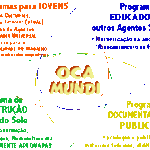
Field 1: YOUTH PROGRAMMES (YP)
These include going on with traditional Tropis activities such as …
• Knowledge & Artes Workshops (OCAs) • Library • CyberCafé • Co-Living Community etc.
… its expansion with longer term courses …
• Formation of Universal Citizenship Agents •
… the reinforcement of the environmental and intercultural dimensions…
• this by enhancing the interchange both with other continents
(e.g. Europe and Africa) AND with the region’s native indian communities •
… and still the youth’s preparations for the new world work reality
• e.g. by means of cooperative enterprising.
The goal is making ways of individual-and-social development (neither is ever possible alone!) accessible to youths from any social and economical strata. It must be seen that, within the Brazilian statistic reality, this takes on a clearly compensatory character.
Although this is the very core of Tropis’s work, Oca Mundi Project’s Phase I has no endowment for YP:
• already existing activities (today supported mainly by the Tobias Association from S.Paulo)
will run parallel (what will be more effective when the support basis is expanded!)
• expansion steps will be defined as the support for new project’s phases is defined.
Field 2: EDUCATORS’ PROGRAMMES (EP)
This field was devised basically as a means of preparing educators for the Youth Programmes (YP) …
… as well as a complementary formation for whatever educators or social agents, both formal and informal, at work in any kind of institution or even as initiative individuals…
… and still as a ‘higher degree’ for youths who have already gone through the YP and (what is not uncommon) want to share further on what they have received, becoming they themselves Social Educators.
Besides, life has shown us that educators’ experience is very seldom taken in account in whatever courses they take part in as students. That is a terrible waste, also in the sense that helps to keep such courses far from educations real-life. Our EP are therefore conceived as forum-courses, with wide opportunities for non-impositive interchange of previous experiences and of knowledge coming from the most different sources.
This has defined one further project goal: Oca Mundi as a forum regarding all kinds of subjects – pluralist, non-hierarchic, non-bureaucratic – open to all people who take humanity’s matters as their own, with interest and responsability – what, according to our criteria, already makes them social educators.
However, Phase I gives only as slight throw to the EP (6% of budget). With that it is not possible to run any longer term courses. Therefore, for the moment such resources are making possible some study groups, workshops and/or meetings on the Reenchantment of Education, Interpersonal and Intercultural Communication and Eco-Building (these with the BP as a practice field).
Field 3: BUILDING AND LAND USE PROGRAMME (BP)
This field has the greatest emphasis in Oca Mundi’s Phase I (67% of the budget), as it intends to create a minimum necessary physical basis for all later phases. More bellow.
Field 4: MEDIA FRONT (MF)
Also called Documenting and Publishing Programme, it previews the documentation and divulgation of the different programmes, as well as the production and publishing of adequate teaching and/or theoretical materials,
be it on Internet, paper or other media.
Due to the present lack of adequate materials, this front has 10% of Phase I budget.
Field 5: INCOME GENERATION (IG)
This field intends to help in the project’s or its different groups general maintenance – including cooperative groups that may come into being later on at the YP. Due to the specific local reality, a most special vein for that will be the reception of ecological, educative and cultural tourism.
This field has no specific endowment in Phase I – so we are since now open to conversations with potential supporters and partners.
Place
Any place where it is possible to transit relatively quickly between the urban-metropolitan and the natural world would be able to shelter the Oca Mundi Project. However, the place which has offered itself is a very special one – so it became in itself one of the project’s reasons of interest.
It consists actually of 2 areas (I e II) belonging to our partner ASACAR – Associacao de Amor ‘a Crianca Arcanjo Rafael (Archangel Raphael Association of Love to the Child – with seat in Santos – which maintains three creches in three of the regions’s cities). Part of this land is being actually donated to the Tropis Association, and it is possible that some more plots be added through other partners’ the initiative.
Area II is contiguous to Salva Selva Project’s area. This project is an iniciative of ASACAR and aims at protecting 80 hectares of Atlantic forest, and river and mangrove swamps, on plain and slope, within the Praia Grande and Sao Vicente municipalities – a surprisingly ‘Amazonian’ landscape only 5 Km from a highway, 8 Km from the see shore and 70 Km from Sao Paulo.
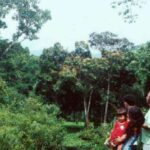
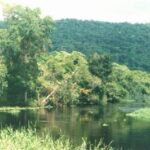
Salva Selva Project’s area, contiguous to Oca Mundi’s Area II, in December 2003.
Bellow, the region in photographs and maps (somewhat outdated).
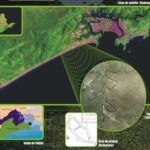
Area I is only 2000 m far from Area II – but belongs already to Praia Grande’s urban tissue – and, with that, to the Região Metropolitana da Baixada Santista (Santos Lowlands Metropolitan Region), an aglomeration of 1,5 million permanent inhabitants, 3 to 4 million on Summer holidays.
Praia Grande itself has 200 thousand permanent inhabitants and can be over one million in Summer. It depends almost entirely on season turism. It is not difficult to imagine how hard is the youth unemployment problem, and how many of them get involved in crime due to pure lack of perspectives.
a page with Praia Grande and Baixada Santista statistical data and social indexes will be added to the site soon
We are speaking therefore about an amazingly rich microcosm: within a few kilometers radium we find …
• almost impenetrable woods
• Cubatao’s heavy industry concentration (iron, petrol etc.)
• Santos’s harbour (the largest in the Southern Hemisphere), Universities and sophisticated shops
• Praia Grande’s shore with its unending line of high buildings which are empty almost all year long !
• local youth anxious for perspectives
• an easy access place which is however extremely ‘different’ for people coming ‘from the world’ through Sao Paulo.
Bellow: Area I images before any Oca Mundi works; looking towards Area II (first line)
and towards city and see shore (second line). In the group photo, the sitting lady is
Alair Rodrigues, AACAR’s founder and president.
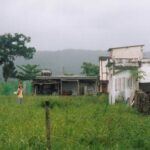
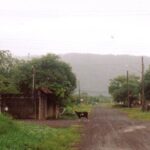
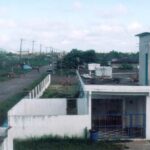
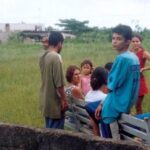
Instalation strategy
Intervening in Area II demands extreme care: the little which is to be built there must resort to already existenting clearings, and show its integration with the environment starting from the design. On of BP’s main goals is precisely to demonstrate possibilities of non-destructive living-together between human beings and nature.
However, Phase I priority is Area I, adjacent to AACAR’s creche, what is going to allow the full instalation of Tropis staff and equipment at the plot, as well as the mutual involvement of the local population, project and staff. Only on this basis it will be possible to start intervening adequately in Area II, all carefully, step by step.
It is importante to stress:
• building on Area I will also try to be careful from the ecological point of view. For us, that includes necessarily a differenciated aestethical care – also creative from the economical point of view, so to be an useful example for the local population;
• Area II will not be simply left aside in Phase I: studies and careful basic infra-structure works will be taking place there soon.
further details about the building works will be released as soon as possible
Oca Mundi
as a cooperation pole
Oca Mundi Project was born with an image in its background: the image of a future
Open University for Education Reenchantment and Universal Co-Living.
This is a large name, which may never come to be actually employed,
but it does express perfectly the project’s ideal.
This does not mean that Tropis ever dream of taking on alone the dimensions of an University. Eco-socially thought, organizations should never be very big: it is much better to have a bunch of small institutions which work cooperatively while keeping their enriching differences (we can speak of ideodiversity ou noodiversity, analogous to biodiversity).
This means: Oca Mundi must be thought of, from its very beginning, as cooperation pole, linked to a wide connections network.
On Nov.01 2003, at the Project’s public release, we were able to present the following diagram of existing and probable connections (English translation soon):

Notice:
Regarding the creation of S.Paulo’s University for Peace / ONU, Tropis has only taken part in a first forum for that – one week before our All Saints Meeting – and has offered to cooperate actively in the next steps. It is still more the recognition of an aims convergence than a concrete decision.
On the other hand, new connections, full of rich perspectives, arose at the All Saints Meeting:
• ALIA – Libertary Association for Childhood and Adolescence (Santos)
• CBCNV – Brazilian Center for Non-Violent Communication (based in Rio)
• Ellerni learning community (based in Sao Paulo).
Along the year 2004, our bulletins will participate any news about that.
May I join and help?
Sure! – in several ways (simultaneous or not):
• as a Partner Organization
ready to enter with resources, contacts, efforts etc.
(see bellow: The Challenge of Cooperation)
• as a Supporting Organization or an Individual Supporter
in the different phases, programmes, sub-projects:
Through VNB, Bingo Lotto Niedersachsen – the environment lottery – has granted
part of Phase I, with good perspectives to go on supporting new project phases…
… but the full development of Oca Mundi Project’s possibilities will be only reached
with a wide and diversified gamma of supporters.
This may mean endowments or donations
– as money
– as building and other materials
– as domestic items (all kinds)
– as professional services etc.
• as a Volunteer
or as a Remunerated Co-Worker at lower cost (partial donation)
in different areas (talk with us about the possibilities)
• other ways still to be discovered: the best way to find them is to talk together!
Contact:
• comunic@tropis.org
• tel. (13) 3464-6397 – from April 04 on: 3479-1738 (Ralf Rickli, coordenador)
• Av. Clodoaldo Amaral 1549 • Trevo • Praia Grande SP, Brazil • postcode 11714-040
Other data may be found at www.tropis.org/whoweare.html .
The challenge of cooperation
We have no doubt that cooperating is the most necessary and desirable thing!
… but none of us, taking part in project, has the illusion that cooperating be easy !
It is most likely the biggest of all challenges to the individual-and-social development of human kind.
If we see so few examples, surely it is not because no one has had the idea before!
TAKING PART MEANS TAKING ON RESPONSABILITIES
If you are interested, that is our pleasure, but it is important to be clear:
• Neither Tropis nor any of the other partner is obliged to accept every organization and/or person who wants to join. An agreement about joining will only happen if we come to consensus after several conversations and the candidates taking part in activities that induce a joint-maturation experience, what is a necessarily and intencionally slow process.
• We suggest that you start by reading the following materials regarding cooperation:
www.tropis.org/biblioteca/condi-cooper.html (ask rr@tropis.org for English translation if you want), as well as other textes at the site www.tropis.org – asking yourself whether you feel real harmony with our aims, views and modus operandi.
If you do feel, it won’t be easy anyway… but trying it will be a joy! Be welcome!
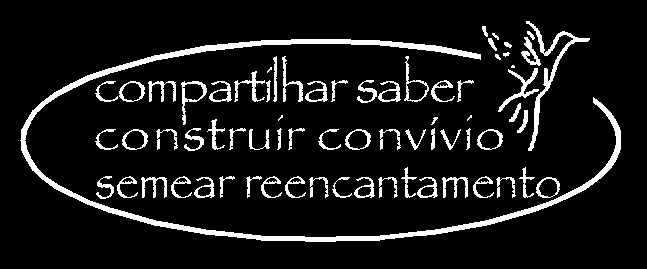
OCA MUNDI: MAIN SUPPORTERS AND PARTNERS
(general Tropis supporters: see Who We Are page)
